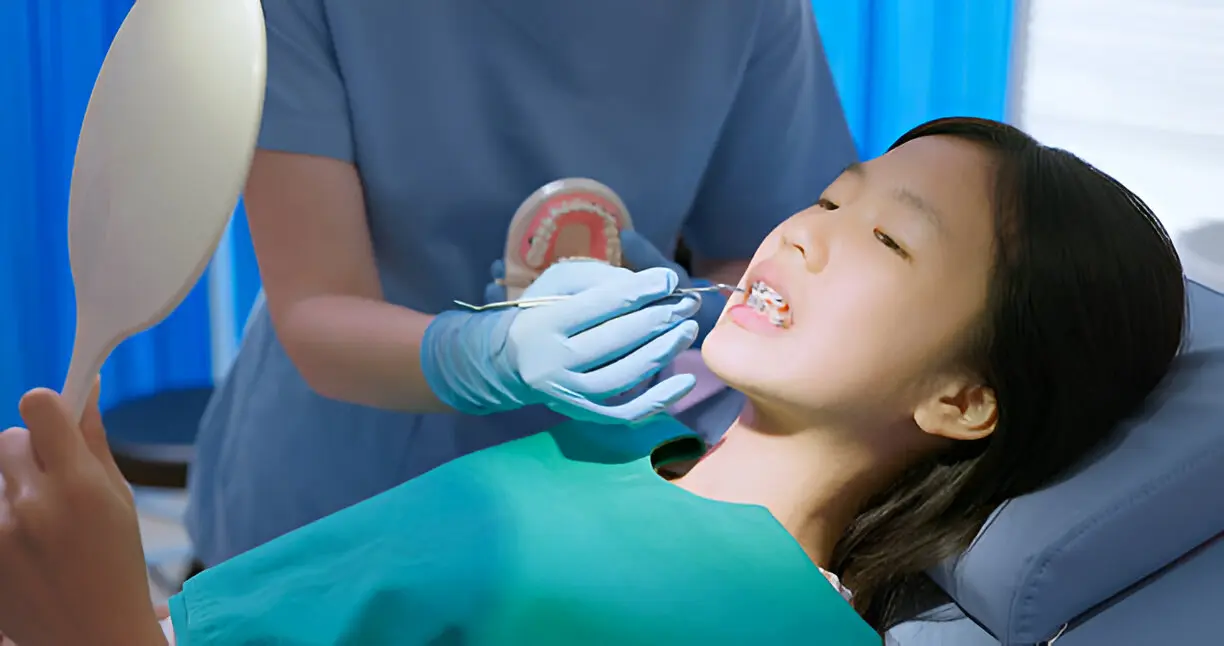Caring for your teeth becomes more crucial when you get braces. The brackets and wires can trap food, leading to plaque and tooth decay. You might wonder how to keep your teeth clean during this time. Dentists and orthodontists share practical tips to help you maintain oral hygiene with braces. A dentist in Denton, TX, says that regular cleaning prevents not only cavities but also gum disease. You need to focus on brushing and flossing carefully around each bracket. Consider using a special orthodontic toothbrush. A good routine protects your teeth and keeps your braces in top condition. You want to avoid any delays in your treatment due to oral health issues. Stick to the advice given by your dental care team. By following these steps, you set the foundation for a healthy, straight smile. Your commitment to oral hygiene will pay off in the long run.
Effective Brushing Techniques
Brushing takes on a new importance when you wear braces. You should brush at least twice a day, but after every meal is best. Use a toothbrush with soft bristles to gently clean around the brackets and wires. Position the brush at a 45-degree angle against the gumline. Brush in small, circular motions. Take your time to brush each tooth surface thoroughly. An electric toothbrush can also be a helpful tool. The oscillating head can reach difficult spots more easily.
The Importance of Flossing
Flossing removes particles from between your teeth that brushing might miss. You need to thread the floss behind each wire to reach the gumline. Dental floss threaders or special orthodontic floss make this task easier. Floss gently between each tooth, curving around the base to remove hidden plaque. While flossing might seem challenging, it prevents gum inflammation and other issues.
Rinsing with Mouthwash
A mouthwash that fights plaque can be a good addition to your care routine. Swish the mouthwash around your mouth for about one minute. This step not only cleans but also freshens your breath. Choose a mouthwash with fluoride for extra protection against tooth decay. Using mouthwash with braces can reach areas toothbrushes and floss miss.
Using Orthodontic Tools
Orthodontic tools like water flossers and interdental brushes can simplify cleaning. Water flossers use a stream of water to remove food particles and plaque. Interdental brushes are small, bristled tools that fit between your teeth and braces. Both tools offer additional cleaning power and are easy to use. Consistent use helps maintain oral health while wearing braces.
Food Choices Matter
Eating the right foods protects both your braces and your teeth. Avoid sticky foods like gum and caramel. Hard foods, such as nuts and candy, can damage brackets and wires. Choose softer foods that don’t require excessive biting or chewing. Fruits and vegetables cut into small pieces are excellent options. A balanced diet supports oral health and speeds up your orthodontic treatment.
Regular Dental Visits
Regular check-ups are essential for anyone with braces. These visits allow your dentist to monitor your oral health. Professional cleanings remove plaque that regular brushing can’t reach. Your dentist can offer personalized advice on oral care.
Understanding Common Issues
Wearing braces may come with some challenges. You might experience sore spots or irritation. Warm saltwater rinses can offer relief. Over-the-counter pain relievers also help. Loose brackets or wires can occur but don’t panic. Use orthodontic wax to cover sharp edges until your next dental appointment. Most issues are manageable with proper care and attention.
Table: Brushing and Flossing Comparison
| Technique | Pros | Cons |
|---|---|---|
| Manual Brushing | Cost-effective, easy to use | Requires more effort, may miss spots |
| Electric Brushing | More effective at cleaning, easier to use | More expensive, requires charging |
| Traditional Flossing | Effective at removing plaque | Difficult with braces |
| Water Flossing | Easy to use, reaches tough spots | Higher cost, requires water |
Commit to a Healthy Smile
With braces, keeping your mouth clean requires extra effort, but the reward is a healthy smile. The practices you adopt now can last a lifetime. Consistency with your care routine makes a difference. Listen to your dental team and follow their advice. Protect your investment in braces by maintaining excellent oral hygiene. For more detailed guidance, the National Institute of Dental and Craniofacial Research offers valuable resources. Remember, your effort today shapes the smile you wear tomorrow.
Also Read-The Growing Role Of Telehealth In General Dental Consultations

